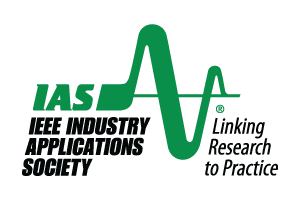Student project demonstrations on emerging technology award program.
The IEEE ECCE Committee on Student Activities and the IEEE Power Electronics Society (PELS) Technical Committee on High-Performance and Emerging Technologies (TC6) are pleased to announce the ECCE 2024 Student Project Demonstrations on Emerging Technology Award Program.
Since 2011, ECCE has organized the hardware demo event for students to showcase their research outcomes and interact with academia and industry. Starting 2013, IEEE PELS TC6 has sponsored this hardware demo event at ECCE as the student project demonstrations on emerging technology award program. Three prizes are awarded at ECCE to the best student project demonstrations. This event has also established a social network among students from different universities and countries.
Topics of Interest | THESE ARE 2024 TOPICS
Topics of interest include but are not limited to:
- Energy harvesting
- 3D power electronics integration
- Wireless power transfer
- High temperature power electronics
- Ultra-efficient and high-power-density converters and inverters
- Emerging power devices (e.g., SiC, GaN) and their applications
- Emerging solutions for passive component used in power electronics
- High reliability power electronic components and converters
- Artificial intelligence and machine learning
- Design automation and simulation tools
- Digital twin and cyber-physical security of power electronics
- Other emerging power electronic applications and related technologies
Submission Guidelines and Award Details
To participate in the student project demonstrations on emerging technology award program, submit the online form by July 15, 2024. If you have difficulty accessing this form, please email maryam@ece.gatech.edu with your name, school, and faculty advisor’s name & email.
Single student project teams will be given preference, but teams with up to three students are allowed. For teams with multiple students, only one student needs to fill the application form. Topics of interest include all emerging areas of power electronics and related technologies. A non-exhaustive list of topic areas of interest is given below. Project teams selected for participation will be notified by August 5, 2024. All members of the selected project teams must register for ECCE in order to participate in the demonstration event.
Travel grants of $400 will be allocated for some or all of participating project team (this amount may vary depending on the number of teams participating, as the total travel budget is $6,000). Team members must submit travel related receipts and the travel grant will be disbursed against actual expenses up to the team’s allocated amount. Team members and project advisors will be invited to a sponsored dinner during ECCE.
For the demonstration, each team will be provided (free of cost) roughly 5-feet by 10-feet space in the ECCE exhibition hall. It is recommended that teams demonstrate hardware prototypes, and utilize posters, slides and/or videos (recorded at their home institution) to explain their demo to the audience and the judges. A power outlet will be available to each team to run a computer. However, the demonstrated hardware and experiments cannot be run in the exhibition hall due to safety concerns. Any participant who violates this rule will be disqualified.
Each project demonstration will be evaluated by a judging panel comprising members from the industry and the academia. The panel members will select the top project demonstrations based on originality/creativity, engineering design, value to practical applications, presentation, and audience appeal. The top three student project teams will be recognized with the Student Project Demonstration on Emerging Technology Award as follows:
- 1st Prize (a certificate and a cash award of $700)
- 2nd Prize (a certificate and a cash award of $500)
- 3rd Prize (a certificate and a cash award of $300)
The top student project team participating in the Student Design Methodology Competition track will be recognized with the:
- Best Student Design Methodology Award (a certificate and a cash award of $500)
Videos of the winning project demonstration may be posted on the IEEE PELS TC6 or TC10 websites.
Confirmed Student Demonstrations
Our Sponsors




